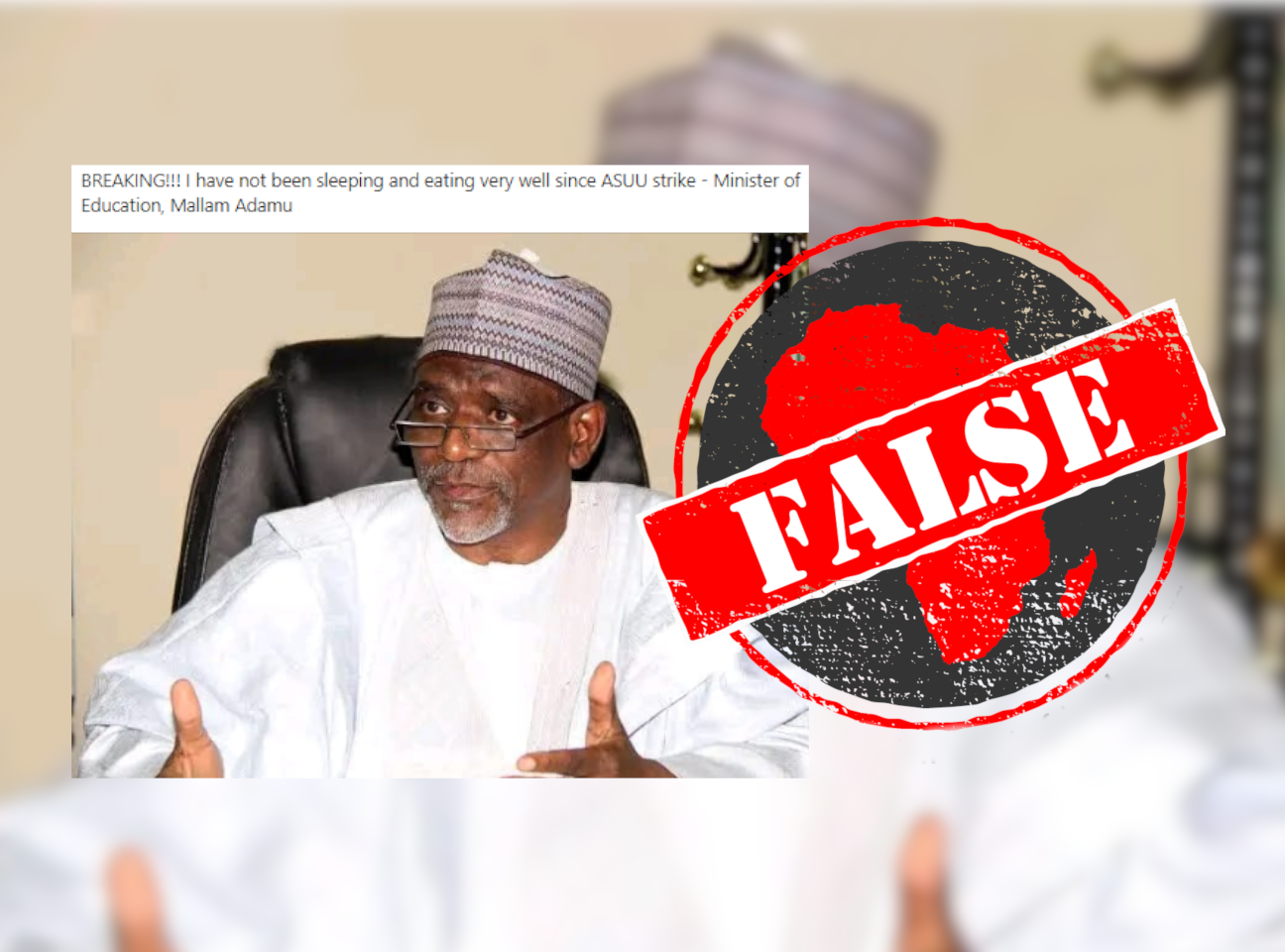IN SHORT: Lecturers in Nigeria have been on strike for more than seven months in 2022, with the government often blamed for the impasse. But the minister of education did not claim to be suffering sleepless nights over this, contrary to quotes widely shared on Facebook.
According to a message posted on Facebook, Nigeria’s minister of education Mallam Adamu Adamu has suffered alongside the country’s striking academic staff.
The September 2022 post reads: “BREAKING!!! I have not been sleeping and eating very well since ASUU strike - Minister of Education, Mallam Adamu.”
Members of the Academic Staff Union of Universities (ASUU) started with a one-month strike on 14 February 2022. In end-August the strike was extended indefinitely as the Nigerian government had yet to meet ASUU’s demands for better working conditions and backpay.
We found the same quote attributed to Adamu on Facebook here, here, here, here, here and here.
But did the minister really say he hadn’t been “sleeping and eating very well” for the previous seven months?

No evidence of statement
None of the Facebook posts provided details on where or when the minister was meant to have made the comment.
We also found no evidence of the statement on Nigeria’s ministry of education website or on social media pages.
Our checks have also revealed that there have been no recent reports of the statement by credible local news outlets in Nigeria.
Since the strike started the government has held meetings with leaders of the union, but at time of writing the parties had not reached a consensus.
Republish our content for free
For publishers: what to do if your post is rated false
A fact-checker has rated your Facebook or Instagram post as “false”, “altered”, “partly false” or “missing context”. This could have serious consequences. What do you do?
Click on our guide for the steps you should follow.
Publishers guideAfrica Check teams up with Facebook
Africa Check is a partner in Meta's third-party fact-checking programme to help stop the spread of false information on social media.
The content we rate as “false” will be downgraded on Facebook and Instagram. This means fewer people will see it.
You can also help identify false information on Facebook. This guide explains how.


Add new comment